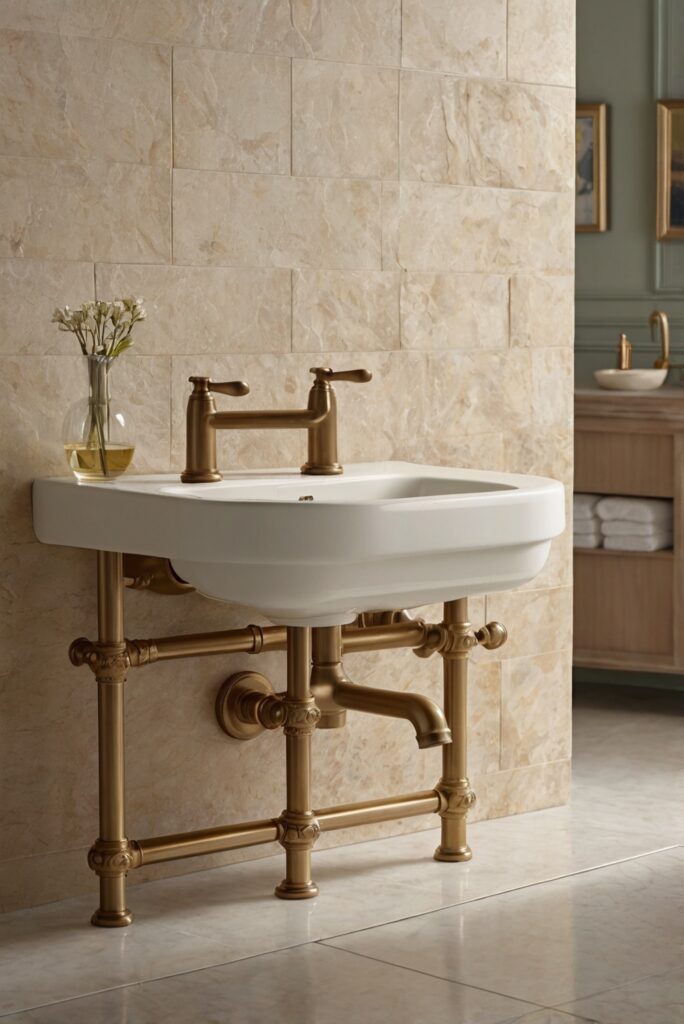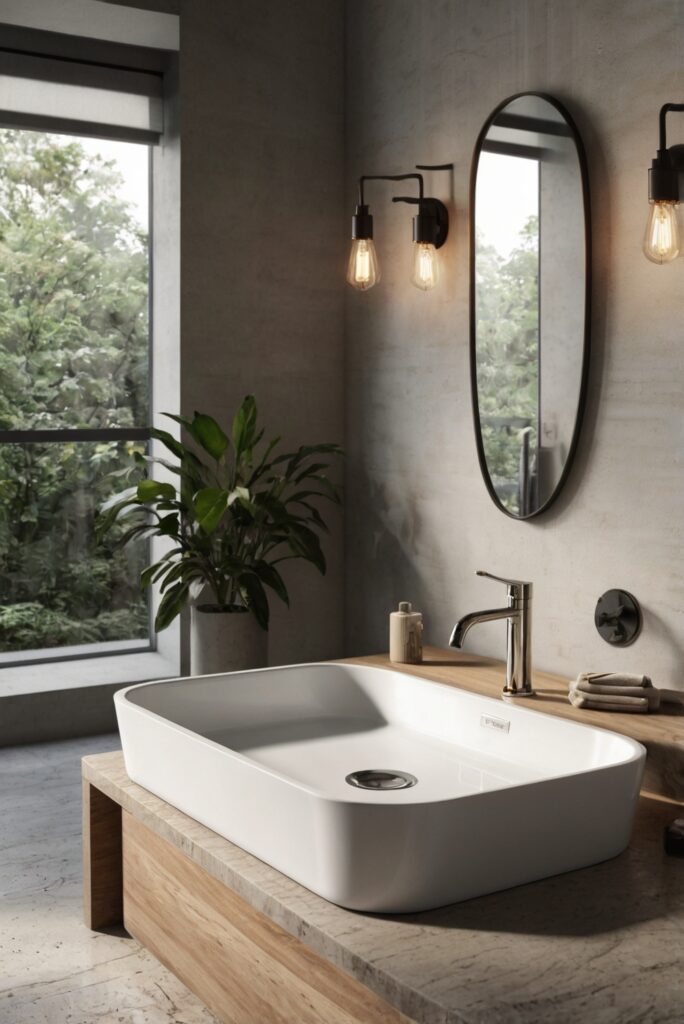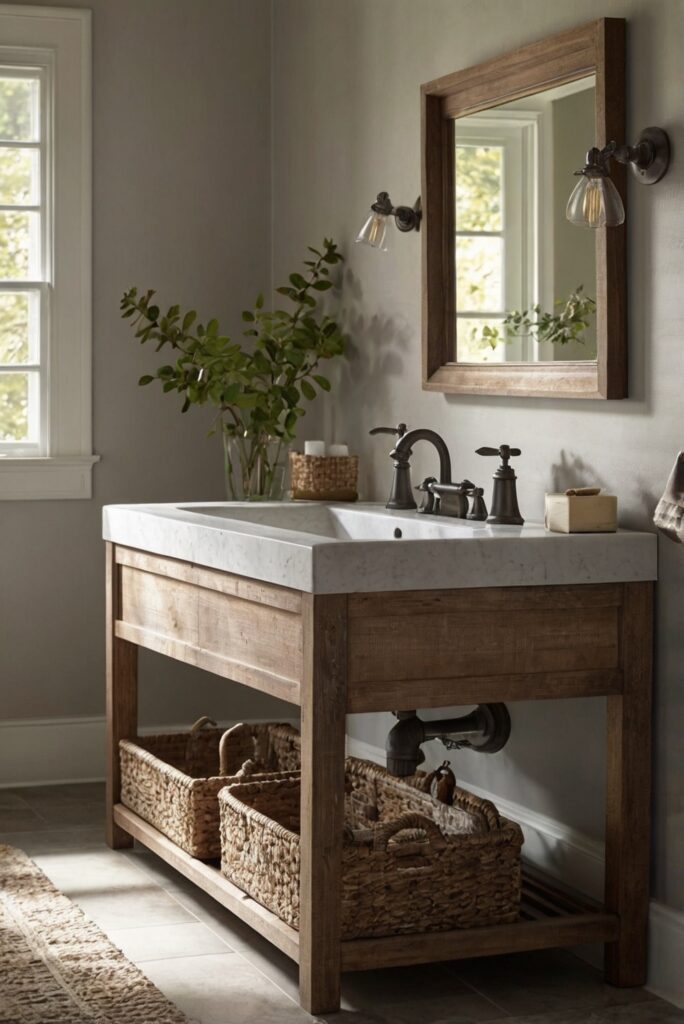Discover the top sink materials to create durable and stylish bathroom surfaces. Dive into essential choices for a resilient design with this daily routine for interior designers.
**
What Are the Best Sink Materials for Resilient Bathroom Surfaces?
**
**
What Are the Best Sink Materials for Resilient Bathroom Surfaces?
**
Granite, quartz, and stainless steel are among the best sink materials for resilient bathroom surfaces. These materials are durable, scratch-resistant, and easy to clean, making them ideal for high-traffic areas like bathrooms. Granite adds a touch of luxury with its natural beauty, while quartz provides a sleek and modern look. Stainless steel sinks are timeless and offer a hygienic surface. When choosing your sink material, consider the style of your bathroom and your daily routine to ensure it meets your needs. Proper maintenance and regular cleaning will keep your sink looking brand new for years to come.
What Are the Best Sink Materials for Resilient Bathroom Surfaces?
Choosing the right sink material is crucial for ensuring a resilient bathroom surface that can withstand daily wear and tear. Here are some of the best sink materials:
Porcelain:
Porcelain sinks are popular for their durability and resistance to stains and scratches. They are easy to clean and maintain, making them ideal for busy bathrooms. Porcelain sinks come in a variety of shapes and styles, allowing you to choose one that complements your bathroom decor.
Stainless Steel:
Stainless steel sinks are another excellent choice for resilient bathroom surfaces. They are resistant to rust and corrosion, making them ideal for moist environments like bathrooms. Stainless steel sinks are also easy to clean and maintain, and they can add a sleek, modern look to your bathroom.
Composite:
Composite sinks, made from a blend of materials like quartz and granite, are highly durable and resistant to scratches, stains, and heat. They come in a variety of colors and finishes, allowing you to customize your bathroom design. Composite sinks are also easy to clean and maintain, making them a popular choice for resilient bathroom surfaces.
Factors to Consider When Choosing a Sink Material:
When selecting a sink material for your bathroom, there are several factors to consider:
1. Durability:
Choose a sink material that is durable and can withstand daily use without showing signs of wear and tear. Porcelain, stainless steel, and composite sinks are all known for their durability.
2. Stain and Scratch Resistance:
Opt for a sink material that is resistant to stains and scratches, as these are common issues in bathrooms. Porcelain and composite sinks are both excellent choices in this regard.
3. Maintenance:
Consider how easy the sink material is to clean and maintain. Stainless steel sinks are known for their low maintenance requirements, while porcelain and composite sinks also offer ease of cleaning.
4. Style and Design:
Choose a sink material that complements your bathroom decor and personal style. Porcelain, stainless steel, and composite sinks come in a variety of styles and finishes to suit different design preferences.
5. Budget:
Consider your budget when selecting a sink material, as prices can vary depending on the material and quality. Stainless steel sinks are typically more affordable, while porcelain and composite sinks may have a higher price point.
In conclusion, when choosing the best sink material for resilient bathroom surfaces, consider factors such as durability, stain and scratch resistance, maintenance, style and design, and budget. Porcelain, stainless steel, and composite sinks are all excellent choices that offer durability, ease of maintenance, and aesthetic appeal for your bathroom.
1. What are the best sink materials for resilient bathroom surfaces?
When it comes to choosing sink materials for resilient bathroom surfaces, materials like porcelain, vitreous china, stainless steel, and quartz are highly recommended. These materials are durable, resistant to scratches and stains, and easy to clean. Porcelain sinks are a classic choice, known for their timeless appeal and durability. Vitreous china sinks are popular for their smooth, glossy finish and resistance to chipping. Stainless steel sinks are a modern option that is easy to maintain and resistant to corrosion. Quartz sinks are gaining popularity for their durability and resistance to heat and scratches.
2. How do sink materials contribute to resilient bathroom surfaces?
The choice of sink materials plays a crucial role in ensuring the resilience of bathroom surfaces. Durable sink materials like porcelain, vitreous china, stainless steel, and quartz can withstand daily wear and tear, resist scratches, stains, and chipping, and maintain their appearance over time. These materials are also easy to clean and maintain, making them ideal for high-traffic bathrooms. By selecting the right sink materials, homeowners can enhance the durability and longevity of their bathroom surfaces, creating a functional and stylish space that will stand the test of time.
3. What factors should be considered when selecting sink materials for resilient bathroom surfaces?
When choosing sink materials for resilient bathroom surfaces, several factors should be taken into consideration. These include durability, resistance to scratches, stains, and chipping, ease of maintenance, aesthetic appeal, and compatibility with other bathroom fixtures. Porcelain, vitreous china, stainless steel, and quartz are all excellent choices that meet these criteria. Homeowners should also consider their budget, personal preferences, and the overall design of the bathroom when selecting sink materials. By carefully evaluating these factors, homeowners can choose the best sink materials for resilient bathroom surfaces that meet their needs and preferences.
4. Are there any maintenance tips for keeping sink materials resilient in the bathroom?
To maintain the resilience of sink materials in the bathroom, it is essential to follow proper maintenance tips. Regular cleaning with mild soap and water is recommended to remove dirt, grime, and soap scum. Avoid using abrasive cleaners or harsh chemicals that can damage the sink surface. For porcelain and vitreous china sinks, gentle scrubbing with a non-abrasive sponge is sufficient to keep them clean. Stainless steel sinks can be polished with a stainless steel cleaner to maintain their shine. Quartz sinks are relatively low-maintenance and only require regular cleaning with a mild detergent and water. By following these maintenance tips, homeowners can ensure that their sink materials remain resilient and looking their best for years to come.
5. How can homeowners enhance the resilience of sink materials in the bathroom?
Homeowners can enhance the resilience of sink materials in the bathroom by taking proactive measures to protect and maintain them. Using sink mats or protective trays can prevent scratches and chipping caused by heavy objects or sharp utensils. Wiping down the sink after each use can prevent water spots and soap scum from building up. Installing a water softener can help reduce mineral deposits that can dull the sink surface over time. Regular inspections for leaks or cracks can prevent water damage and ensure the longevity of the sink materials. By incorporating these strategies into their routine maintenance, homeowners can enhance the resilience of sink materials in the bathroom and preserve the beauty and functionality of their space.



